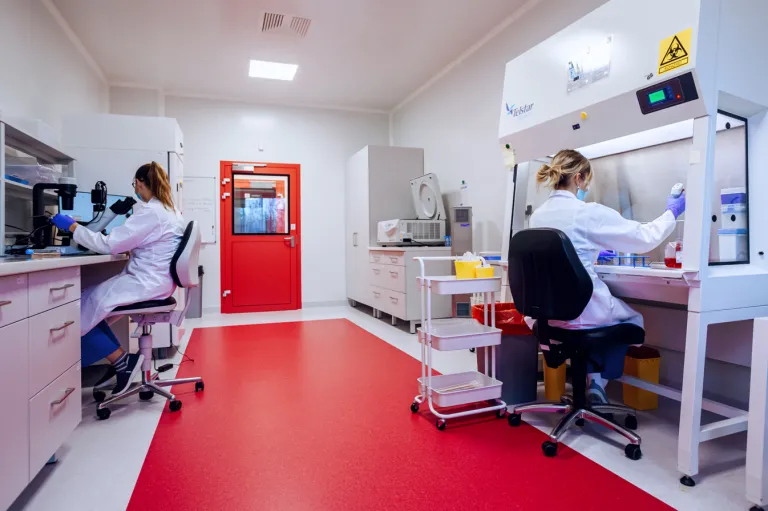Cytology is a screening test for cervical cancer. This extremely important test should be performed regularly by every woman. Doctors advise that while you are preparing to get pregnant, you should also get a follow-up cytology. In turn, when should cytology be performed during pregnancy?
According to the latest recommendations of the Polish Society of Gynecologists and Obstetricians
[1]
concerning screening for cervical cancer, it is recommended to perform cytology on a liquid medium (LBC), rather than the classic slide cytology as before. Besides, the examination should be done with special brushes. This is because the use of various types of cotton balls or spatulas has long since been abandoned. Cytology during pregnancy is a safe test for both the mother-to-be and the developing baby.
Cytology in pregnancy-when to perform?
According to the current Organizational Standard for Perinatal Care, every woman during her first visit during pregnancy, usually before the 10th. week, she should have a cytology if the test has not been performed in the past six months. Pregnancy time does not exempt from cervical cancer prophylaxis, and cytology should not be abandoned under any circumstances. Indeed, cervical cancer is one of the most common cancers in pregnant women. It can appear in any of her trimesters, so doctors often recommend repeating the test after a few months.
Cytology during pregnancy- how to prepare?
The material for the cytological examination is taken from the canal and the cervical disc with a special brush in the office, usually in the gynecological chair. This test should be performed before gynecological examination and transvaginal ultrasound. It is also best for a woman not to have intercourse before the test and not to use globules or other preparations. After collection of the material, spotting may occur due to violation of tissue continuity with a rough brush. However, this should not be a cause for concern.
Cytology in pregnancy-result
The result of the cytological examination obtained should always be consulted with the attending physician. Currently, the results are described using the Bethesda system. A normal result does not require further intervention or testing during pregnancy. In in case of receiving the result of ASC- US (atypical squamous epithelial cells of undetermined nature) or LSIL (low-grade intraepithelial neoplasia/low-grade dysplasia- CIN I), it is permissible to postpone colposcopy until 6. weeks after delivery. Indeed, it is believed that up to more than 60% of intraepithelial neoplasia undergoes spontaneous regression in pregnant women. If, on the other hand, the result obtained is ASC-H(atypical squamous epithelial cells, high-grade intraepithelial neoplasia cannot be ruled out), HSIL (high-grade intraepithelial neoplasia; includes medium- CIN II and high-grade dysplasia- CIN III) or AGC(atypical cervical or endometrial or other glandular epithelial cells), colposcopy should be performed. It involves the doctor viewing the cervix under magnification and collecting material for histopathological examination. Further treatment will depend on the results obtained and the specific case. HPV genotyping, a test that detects high-oncogenic HPV types, which are the most common cause of cervical cancer, is also recommended.
[1]
Screening regimen for cervical cancer (Cervical Cancer)- Polish Society of Gynecologists and Obstetricians (PTGiP) – Version XII 2021
Rate this article:











